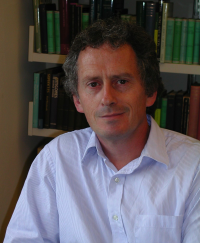非常抱歉,
你要访问的页面不存在,
非常抱歉,
你要访问的页面不存在,
非常抱歉,
你要访问的页面不存在,
验证码:

职称: Professor
所属学校:Princeton University
所属院系:Latin Literature and Language
所属专业:Hispanic and Latin American Languages, Literatures, and Linguistics, General
联系方式:609-258-7060
I have worked on Latin literature and on Roman culture more broadly, including especially Roman religion and time. After my first degree at Auckland University in New Zealand, I went to Oxford for my D.Phil. (1982), and after positions both in Britain and the United States I came to Princeton in 2000. In addition to articles on Latin literature (particularly on my favourite Latin poets, Catullus, Virgil, Horace, and Ovid), I have written three books. The Gods in Epic (Oxford, 1991) investigated the problem of how gods were represented in (especially Latin) epic, focusing on the problems of fiction involved in negotiating the boundaries between Roman religion and epic forms of representation. My second book, Literature and Religion at Rome (Cambridge, 1998), looked more broadly at the problem of the interaction between the literary and religious systems of Rome, framing the issues in terms of a dialogue between the way scholars tend to read Greek culture and Roman culture more generally. My third book, Caesar’s Calendar (California, 2007), based on my Sather Classical Lectures of 2004, examined Roman constructions of time, in terms of synchronism, historical vs. mythical time, and calendrical time. My most recent book, Beyond Greek: The Beginnings of Latin Literature , is about why Rome developed a literature in Latin when it shouldn’t really have done so: it will be published in Fall 2015
I have worked on Latin literature and on Roman culture more broadly, including especially Roman religion and time. After my first degree at Auckland University in New Zealand, I went to Oxford for my D.Phil. (1982), and after positions both in Britain and the United States I came to Princeton in 2000. In addition to articles on Latin literature (particularly on my favourite Latin poets, Catullus, Virgil, Horace, and Ovid), I have written three books. The Gods in Epic (Oxford, 1991) investigated the problem of how gods were represented in (especially Latin) epic, focusing on the problems of fiction involved in negotiating the boundaries between Roman religion and epic forms of representation. My second book, Literature and Religion at Rome (Cambridge, 1998), looked more broadly at the problem of the interaction between the literary and religious systems of Rome, framing the issues in terms of a dialogue between the way scholars tend to read Greek culture and Roman culture more generally. My third book, Caesar’s Calendar (California, 2007), based on my Sather Classical Lectures of 2004, examined Roman constructions of time, in terms of synchronism, historical vs. mythical time, and calendrical time. My most recent book, Beyond Greek: The Beginnings of Latin Literature , is about why Rome developed a literature in Latin when it shouldn’t really have done so: it will be published in Fall 2015